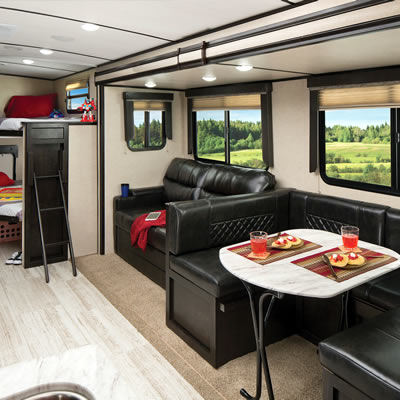Keeping the rig on the road
Making sure your RV and its tires are in good repair is a necessary part of the snowbird lifestyle.

RVers always say, “If you want company, all you need to do is lift the hood on your rig and all the sidewalk mechanics will be right there to help.”
RV repairs and maintenance are an ongoing exercise and can be costly if you cannot do some of the work yourself. Last year, we suddenly developed a horrible noise in the area of the motor. Now, Fred has been around motorized vehicles most of his life and has done much of the work on ours, but he was at a loss to even guess where this noise was coming from, as were the wannabe mechanics in the park.
After checking with some of the folks around, we found a mechanic who had a reputation for being good as well as fair (when you are not from the area, or even from the same country, you feel like there is a tendency to inflate the work as well as the price). That was certainly an additional expense we did not anticipate.
Tires
“But those tires were new seven years ago and we only have 20,000 kilometres on them! We use the toad to drive and explore around where we are parked. The RV sits in the park!”
Yes, but...
The recommendation for the life of tires on an RV is five years. Even though the amount kilometres you travel has some bearing on their condition, just sitting in the weather with all that weight on them is a critical factor. Another factor is weather and another is the correct air pressure. Insufficient air pressure in the tires can result in wear and cracking.
Checking on the outside wall of the tires can be a good indication that the walls are weakening. To be safe, the tires need to be replaced. Wheel covers may help to protect tires from the sun and heat, but the mere fact that they are stationary and not moving affects the length of the life of tires.
Batteries
Remember you have separate batteries for the living section of your RV. There is information about batteries in the December Snowbirding 101 column. To sustain the maximum efficiency from your batteries, do not let the voltage fall below 12 volts.
Keep in mind what we call the Boy Scouts approach to Murphy’s Law: Be prepared for anything that can go wrong.








